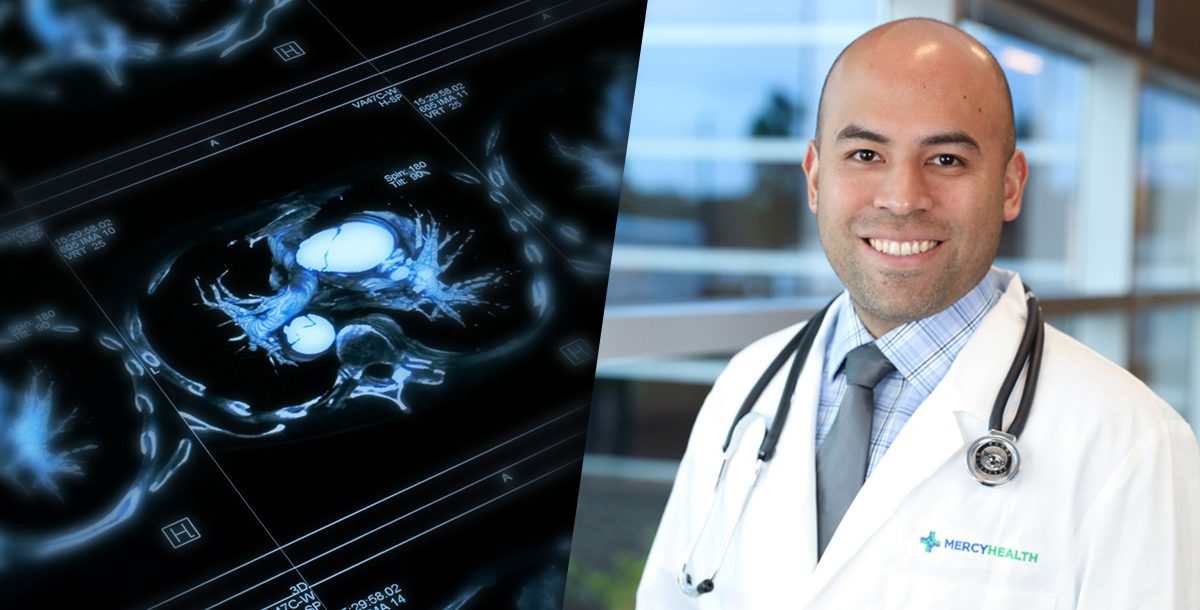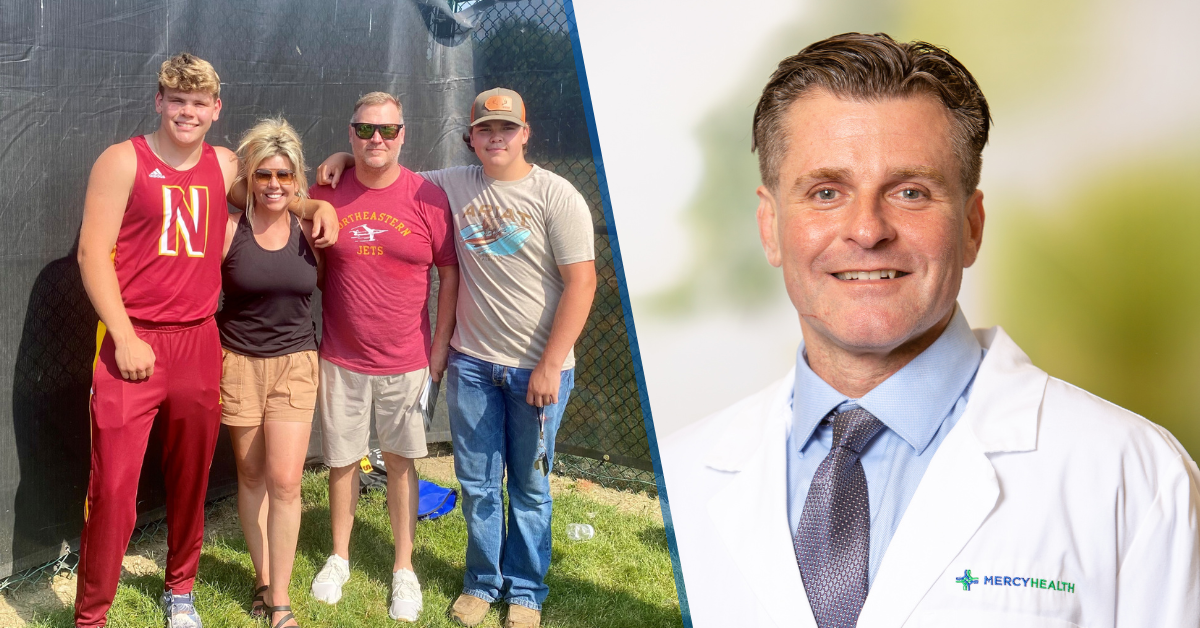In September 2020, cardiologist Francisco Lopez, MD, launched the Cardiac Magnetic Resonance Imaging (MRI) Program at The Jewish Hospital – Mercy Health. This program has proved invaluable in safeguarding the lives of patients. Recently, this group has included professional and student athletes who’ve recovered from COVID-19 but have developed myocarditis as a result of their illness.
Myocarditis is a condition in which the heart muscle becomes inflamed, affecting the heart’s ability to pump blood efficiently. People with myocarditis can report symptoms including chest pain, abnormal heartbeat or arrhythmia and shortness of breath. Without treatment, myocarditis can permanently damage the heart and lead to heart failure and sudden death.
“We are seeing cases of myocarditis as a direct injury from the virus,” says Dr. Lopez. “Most cases are mild, with the heart’s pumping function remaining stable, but other patients can end up in intensive care.”
While there are no clear guidelines on who should receive a heart MRI, a recent meeting of the Society for Cardiovascular Magnetic Resonance suggested that patients with mild COVID-19 symptoms may benefit from an MRI screening.
“After recovering from COVID-19, athletes will visit their primary care or sports medicine doctor to ensure they are safe to return to play. An echocardiogram is a routine part of that visit. Should it be abnormal, the doctor may do a blood test to check for troponin, a protein found in the heart muscle that is released into the bloodstream if the heart has become damaged,” says Dr. Lopez. “Elevated troponin will likely trigger a request for that athlete to have a cardiac MRI.”
“Other patients, such as ‘long haulers’ who are experiencing palpitations, an elevated heart rate (or tachycardia) and fatigue after having COVID-19, should talk with their doctor about having an echocardiogram,” he adds. “Based on the findings of the echo and further tests, we may determine that the patient should have a cardiac MRI to help in making a diagnosis and determining treatment options.”
Details on the link between COVID-19 and myocarditis continue to emerge.
“The more we see COVID-19, the more we see younger patients and athletes with mild cases of myocarditis, but we don’t yet know how prevalent the condition is in all COVID-19 patients,” says Dr. Lopez. “Many patients who have COVID-19 ride out the illness at home and they don’t get the follow up tests that athletes do.”
Because myocarditis affects the heart’s pumping function, cardiologists treat it by following heart failure guidelines, which include monitoring symptoms, prescribing medication and suggesting changes in diet and lifestyle until the condition improves and the patient can get back to their normal routine.
Cardiac MRI has also proved useful in helping diagnose pericarditis in patients recovering from COVID-19 who are experiencing chest discomfort.
“Pericarditis is the inflammation of the sac that surrounds the heart, and an MRI is the best test available to diagnose it,” says Dr. Lopez.
Treatment for pericarditis focuses on caring for the symptoms and includes medication and, in some cases, surgery.
Learn more about the heart care services we offer at Mercy Health and stay up to date on what we are doing related to COVID-19.






